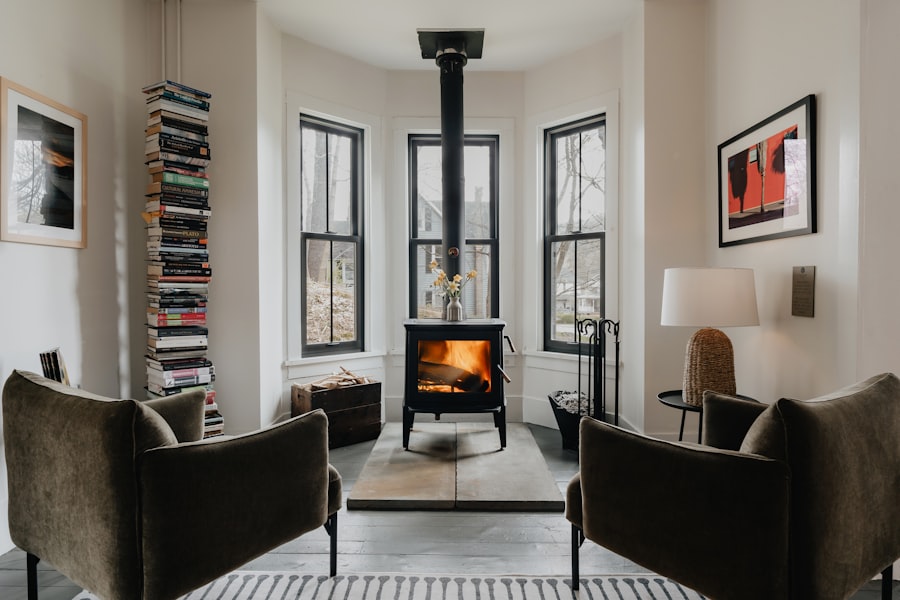Raising young chickens can be a rewarding experience, but it’s important to understand their specific needs in order to ensure their health and well-being. Young chickens, also known as chicks, require a warm and secure environment to thrive. They are particularly sensitive to temperature fluctuations and need to be kept in a controlled environment during their first few weeks of life.
Additionally, they need access to clean water, high-quality feed, and protection from predators. It’s important to provide them with a comfortable and stress-free environment to promote healthy growth and development. Furthermore, young chickens have specific nutritional requirements that need to be met in order for them to grow into healthy adult birds.
It’s important to provide them with a balanced diet that includes the right mix of protein, carbohydrates, vitamins, and minerals. Additionally, they need access to grit and oyster shell to aid in digestion and eggshell formation once they reach laying age. Understanding the needs of young chickens is crucial for their overall well-being and success in the long run.
Table of Contents
Key Takeaways
- Young chickens require a warm and draft-free environment to thrive, with temperatures around 95°F in the first week and decreasing by 5°F per week until reaching 70-75°F.
- When transitioning chickens to outdoor temperatures, gradually introduce them to the outdoor environment, starting with short periods and gradually increasing the time spent outside.
- Supplemental heat in the coop can be provided using heat lamps or radiant heaters, ensuring that there are no fire hazards and that the chickens have enough space to move away from the heat source if needed.
- Monitoring temperature fluctuations is crucial to ensure that chickens are comfortable and healthy, as sudden drops in temperature can be harmful to young or vulnerable birds.
- Consider the breed and age of chickens when preparing for extreme weather conditions, as some breeds are more cold-hardy while others may require additional protection or heat during colder months.
- Consulting with a veterinarian or poultry expert can provide valuable guidance on how to best care for chickens in varying temperatures and weather conditions, ensuring their health and well-being.
Transitioning chickens to outdoor temperatures
Gradual Transition to Outdoor Temperatures
It’s important to start by introducing them to outdoor temperatures for short periods of time, gradually increasing the duration as they become more accustomed to the outdoor conditions. This gradual transition will help prevent stress and reduce the risk of illness or injury.
Providing a Safe Outdoor Environment
In addition to gradually introducing young chickens to outdoor temperatures, it’s important to provide them with a safe and secure outdoor space. This can include a fenced-in area with access to fresh grass, dirt for dust bathing, and protection from predators.
A Safe and Healthy Transition
Providing them with a safe outdoor environment will allow them to explore and forage while still being protected from potential dangers. Transitioning chickens to outdoor temperatures is an important step in their development and should be done with care and consideration for their well-being.
Providing supplemental heat in the coop

During the colder months, it may be necessary to provide supplemental heat in the chicken coop to keep young chickens warm and comfortable. This is particularly important for young chicks, as they are more sensitive to cold temperatures and need extra warmth to thrive. There are several options for providing supplemental heat in the coop, including heat lamps, radiant heaters, and heated pads.
It’s important to choose a heating source that is safe, reliable, and appropriate for the size of the coop. When providing supplemental heat in the coop, it’s important to monitor the temperature regularly to ensure that it remains within a safe range for the chickens. The ideal temperature for young chickens is around 95 degrees Fahrenheit during their first week of life, with the temperature decreasing by 5 degrees each week until they are fully feathered.
It’s important to provide a warm and comfortable environment for young chickens to promote healthy growth and development.
Monitoring temperature fluctuations
Monitoring temperature fluctuations is crucial when raising young chickens, as they are particularly sensitive to changes in temperature. It’s important to regularly check the temperature in the coop and make adjustments as needed to ensure that the chickens are comfortable and safe. This can be done using a thermometer placed in the coop, or by observing the behavior of the chickens to gauge their comfort level.
In addition to monitoring temperature fluctuations in the coop, it’s important to be aware of external factors that can impact the temperature, such as extreme weather conditions or power outages. It’s important to have a plan in place for addressing these situations and ensuring that the chickens remain safe and comfortable. Monitoring temperature fluctuations is an important part of caring for young chickens and should be done regularly to ensure their well-being.
Considering the breed and age of chickens
When raising young chickens, it’s important to consider the breed and age of the birds in order to provide them with the appropriate care and environment. Different breeds of chickens have different temperature tolerances and may require different levels of care when it comes to temperature regulation. Additionally, younger chickens are more sensitive to temperature fluctuations and may require extra warmth during their first few weeks of life.
It’s important to research the specific needs of the breed of chicken you are raising in order to provide them with the best possible care. This can include understanding their temperature tolerance, nutritional requirements, and overall health considerations. Additionally, it’s important to consider the age of the chickens when providing care, as younger birds may require different levels of attention and support than older birds.
Considering the breed and age of chickens is an important part of raising healthy and happy birds.
Preparing for extreme weather conditions

Preparing for Extreme Temperatures
This preparation includes having a plan in place for addressing extreme heat or cold, as well as ensuring that the coop is secure and able to withstand severe weather events such as storms or high winds. It’s essential to have a backup source of heat in case of power outages during cold weather, as well as a plan for providing shade and ventilation during hot weather.
Monitoring Health Concerns
In addition to preparing for extreme weather conditions, it’s vital to have a plan in place for addressing potential health concerns that may arise as a result of extreme weather. This includes monitoring the chickens for signs of heat stress or cold-related illnesses, as well as providing them with additional support as needed.
Ensuring Safety and Well-being
Being prepared for extreme weather conditions is a critical aspect of caring for young chickens and can help ensure their safety and well-being. By taking proactive measures, you can minimize the risks associated with extreme weather and provide a healthy and safe environment for your chickens to thrive.
Consulting with a veterinarian or poultry expert
Finally, consulting with a veterinarian or poultry expert can provide valuable insight and guidance when raising young chickens. These professionals can offer advice on caring for young chickens, including providing supplemental heat, transitioning them to outdoor temperatures, and addressing potential health concerns. They can also provide recommendations for specific breeds of chickens and offer guidance on creating a safe and comfortable environment for the birds.
In addition to seeking advice from a veterinarian or poultry expert, it’s important to stay informed about best practices for raising young chickens through reputable sources such as books, online resources, and local agricultural extension offices. By staying informed and seeking guidance from knowledgeable professionals, you can ensure that you are providing the best possible care for your young chickens. In conclusion, raising young chickens requires careful consideration of their specific needs, including providing supplemental heat, transitioning them to outdoor temperatures, monitoring temperature fluctuations, considering their breed and age, preparing for extreme weather conditions, and seeking guidance from knowledgeable professionals.
By understanding these key factors and taking proactive steps to address them, you can ensure that your young chickens thrive and grow into healthy adult birds.
If you’re wondering how long you have to keep your chickens warm, you may also be interested in learning about the benefits of renting a chicken coop. Renting a coop can be a great option for those who want to try out chicken keeping without committing to building their own coop. Check out this article to learn more about the advantages of renting a chicken coop.
FAQs
What temperature do chickens need to be kept at?
Chickens need to be kept at a temperature of around 70-75 degrees Fahrenheit during the first few weeks of their life.
How long do I need to keep my chickens warm?
Chickens need to be kept warm for the first 6-8 weeks of their life, until they have developed enough feathers to regulate their own body temperature.
What are the signs that my chickens are too cold?
Signs that your chickens are too cold include huddling together, shivering, and being lethargic. It’s important to monitor their behavior and adjust the temperature as needed.
What are some ways to keep chickens warm?
Ways to keep chickens warm include using heat lamps, heating pads, or brooder heaters. It’s important to provide a draft-free environment and ensure that the chickens have access to food and water.
What happens if chickens are not kept warm enough?
If chickens are not kept warm enough, they can suffer from cold stress, which can lead to decreased growth, weakened immune systems, and even death. It’s important to monitor their environment and make adjustments as needed.
Meet Walter, the feathered-friend fanatic of Florida! Nestled in the sunshine state, Walter struts through life with his feathered companions, clucking his way to happiness. With a coop that’s fancier than a five-star hotel, he’s the Don Juan of the chicken world. When he’s not teaching his hens to do the cha-cha, you’ll find him in a heated debate with his prized rooster, Sir Clucks-a-Lot. Walter’s poultry passion is no yolk; he’s the sunny-side-up guy you never knew you needed in your flock of friends!







